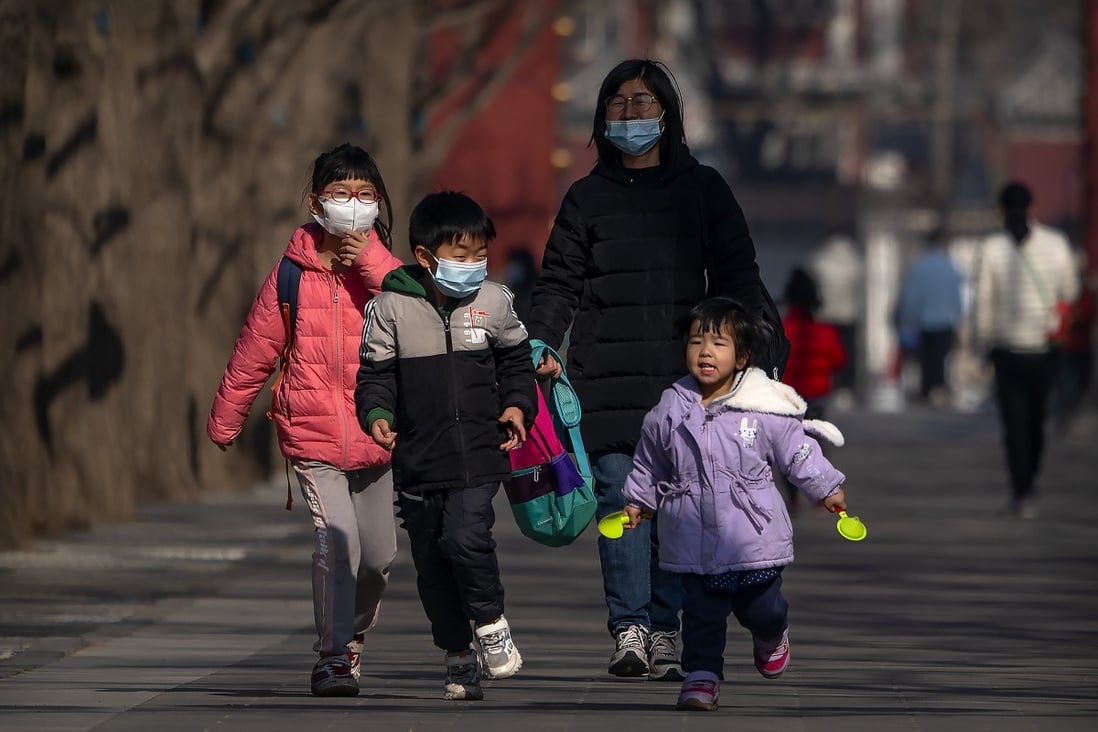China scrapped its decades-old one-child policy in 2016, replacing it with a two-child limit which has failed to lead to a sustained upsurge in births.
The cost of raising children in cities has deterred many Chinese couples.
The latest move was approved by President Xi Jinping at a meeting of top Communist Party officials.
The statement said major steps were needed to address the deepening problem of the ageing population.
“Birth policies will be further improved. Policy that allows a couple to have three children will be introduced with supporting measures,” it said.
“This will improve the population structure of China.”
But some experts were skeptical of the impact.
“But who wants to have three kids? Young people could have two kids at most. The fundamental issue is living costs are too high and life pressures are too huge.”
China will allow each couple to have three children in a major policy overhaul to address the challenges of its ageing population
.
The decision was announced after a Communist Party Politburo meeting chaired by President Xi Jinping on Monday.
The statement said major steps were needed to address the deepening problem of the ageing population.
“Birth policies will be further improved. Policy that allows a couple to have three children will be introduced with supporting measures,” it said.
“This will improve the population structure of China.”
In October 2015, China replaced its one-child policy with a two-child policy, but some researchers suggested that the change would have only a marginal effect on the greying of the population if no other action were taken.
Other measures suggested include postponing the retirement age, and targeting marriage and family values education campaigns at youth. Improvements would be made on child care service, maternity leave and child birth insurance, the statement said.
The decision comes just weeks after the release of a summary of census data pointing to further decline in the number of births in the country.





